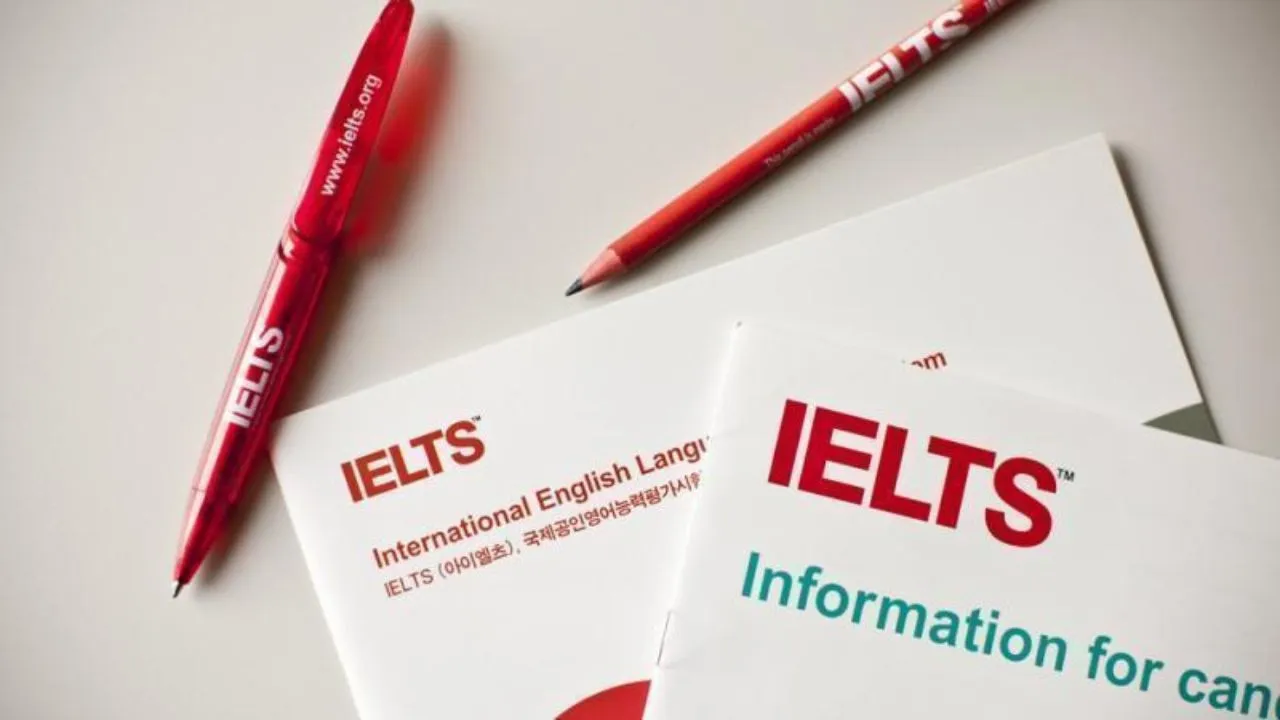Introduction
Are you planning for IELTS to fulfill your dream of studying abroad?
The International English Language Test System (IELTS) is one of the most popular English language tests in the world, required by many universities, colleges, and employers. It is also accepted for immigration purposes in several countries.
However, it can be a challenging test and many of you will struggle to achieve your desired IELTS score.
This article is a complete book on the IELTS band score, you will get to know everything about your IELTS score, its validity, calculation, score chart, IELTS band description, and more.
Introduction
Are you planning for IELTS to fulfill your dream of studying abroad?
The International English Language Test System (IELTS) is one of the most popular English language tests in the world, required by many universities, colleges, and employers. It is also accepted for immigration purposes in several countries.
However, it can be a challenging test and many of you will struggle to achieve your desired IELTS score.
This article is a complete book on the IELTS band score, you will get to know everything about your IELTS score, its validity, calculation, score chart, IELTS band description, and more.
As stated above your overall IELTS score will be rounded off to the nearest half-band (0.5) or whole-band score.
- It means that if your final score is 7.1, then your score will go down to 7. As 7.1 is nearer to 7 than to 7.5.
- For example, if your overall IELTS band score is 5.85, then your final score will be 6, as 5.85 is nearer to 6 than to 5.5.
- If your overall IELTS score is 7.25, your score will be rounded up to 7.5. This score lies between 7 and 7.5, so IELTS will round up this score to 7.5 at the time of evaluation.
As you have observed, your IELTS score is rounded up or down to the nearest half-band score (0.5) or a whole-band score. In this way, your overall IELTS band score is calculated.
Understand your overall band scores with descriptions
The table below describes each band score based on your English language skill level as stated by IELTS:



Types of IELTS test
Do you know that IELTS offers a range of tests, giving you the flexibility to choose the right tests that align with your goals and your needs?
There are two types of IELTS Tests:
- IELTS Academic: This test is for those students who are planning to study in English-speaking countries. This test aims to assess whether you are ready and capable of studying in English. This test has a vocabulary that is familiar within an academic setting.
You can also take this test for professional registration purposes.
- IELTS General Training: This test is suitable for those students wishing to migrate to an English-speaking country like Australia, Canada, the UK, or New Zealand for work or settlement purposes.
This test aims to assess the English language skills that you will need to deal with social situations and various workplace environments every day.
IELTS section band scores
Listening band scores
There are 40 questions in the IELTS Listening Test, for each correct you will be awarded 1 mark. Scores out of 40 will be converted into an IELTS 9-band scale. Your scores are calculated in whole and half bands.
Here is the table for your listening ielts score, it will help you to convert your raw score into your band score:
IELTS reading band score
There are 40 questions in the IELTS reading test, for each correct answer you will be rewarded with 1 mark. Scores out of 40 will be converted into an IELTS 9-band scale. Your scores are calculated in whole and half bands.
There are two types of IELTS Reading Tests, IELTS Academic Reading and IELTS General Training Reading Tests. Both of these tests are graded on the same scale.
The Academic Reading Test has a more difficult vocabulary or greater complexity of style.
To secure a band score in the General Training Reading test, you need to answer a greater number of questions correctly.
Here is the table for your reading IELTS score for your academic reading test, it will help you to convert your raw score into your band score:
Here is the table for your reading IELTS score for your general training reading test, it will help you to convert your raw score into your band score:
IELTS writing band score
Two tasks in the IELTS Writing Test are to be done for evaluation, both tasks are assessed in different ways:
Your Writing Task 1 is assessed based on these criteria:
- Task achievement
- Coherence and cohesion
- Lexical resource
- Grammatical range and accuracy
Your Writing Task 2 is assessed in the same way except for one criterion which is task response.
IELTS speaking band scores
The IELTS Speaking Test takes place in a quiet room with a qualified IELTS examiner in the form of a face-to-face interview. This test assesses your ability to communicate in the English language.
The speaking test is assessed based on these criteria:
- Fluency and coherence: It refers to the ability to talk with normal levels of rate and effort and link the words and language together to form coherent and connected speech. The indicators of fluency are speech rate and speech continuity.
The indicators of coherence are the logical sequencing of sentences, clear marking of stages in a discussion, narration, or argument, and the use of cohesive devices.
- Lexical resource: It refers to the range of vocabulary used and how precisely the meanings and attitudes are expressed.
Indicators are the variety of words used, the adequacy and appropriacy of the words used, and the ability to fill out the gap in vocabulary by using other words without noticeable hesitation.
- Grammatical range and accuracy
This criterion is used to judge how appropriately and accurately test takers can use their grammatical resources. The indicators are the length and complexity of the spoken sentences, the appropriate use of subordinate clauses, and the range of sentence structures.
- Pronunciation
It is used to judge the ability of the test taker to make a comprehensible speech to fulfill the speaking test requirements. The indicators are the amount of strain on the listener.
The result of this test will be given in band scores ranging from band 0 to band 9 and the same criteria is used for both the General Training test and the Academic Test to ensure the fairness and highest level of accuracy in the result.
IELTS score validity period
According to ielts.org, your IELTS scores are valid for up to 2 years after a test has been taken. Some organizations that accept IELTS can choose to accept results for a longer period. You can check for this at the time of application in a particular university or country.
Why IELTS is important to take?
IELTS is a standardized test that is accepted globally by thousands of universities, and workplaces. This test is proof of your English language ability at the immigration authorities in Australia, Canada, the UK, and New Zealand.
IELTS can help you achieve your dream come true to study, working abroad, and move abroad.
IELTS test score is also used at the time of applying for a visa. Score requirements can vary from country to country and may depend on the visa that you are applying for.
IELTS Scores will help you to get placed in the best universities around the world to gain valuable experiences and boost your chances of employment by studying abroad.
Conclusion
Even after being a difficult exam, it is possible that you can secure a good IELTS band score with proper practice. Test takers can check the previous IELTS-solved papers of writing to get an idea about the level of questions asked.
IELTS has a specified time limit for each section, so you can practice smartly to answer the question quickly and correctly.
Still confused? Connect with our team of experts and get the right guidance on IELTS!





























12 Responses
Wow, superb weblog structure! How lengthy have you been running a blog for?
you made blogging look easy. The whole look of your web site is magnificent, let alone the content material!
You can see similar here dobry sklep
Semrush Group Buy has been a game changer for my online marketing efforts!
Access to high-end SEO tools at such an affordable cost can be a marketing wish come reality.
It’s strengthened my plan, aiding me in analyzing and optimizing with a high degree of precision. Highly recommend
to anyone serious in boosting websites without breaking
bank!
Rattling good visual appeal on this website , I’d rate it 10 10
I’ll right away seize your rss feed as I can not in finding your e-mail subscription link or newsletter service.
Do you have any? Please permit me recognize so that I may subscribe.
Thanks.
Can you be more specific about the content of your article? After reading it, I still have some doubts. Hope you can help me.
farmacia online in Spagna per i farmaci SMB Burgdorf Comprimidos sin receta médica
Medikamente in Belgien ohne ärztliche Verschreibung Fortbenton Gerasdorf bei Wien acheter médicaments en Europe
Hello are using WordPress for your blog platform?
I’m new to the blog world but I’m trying to get started and
create my own. Do you need any html coding expertise to make your own blog?
Any help would be greatly appreciated!
farmacia en línea de medicamentos en España Reckitt Benckiser Allschwil
farmaci disponibile su prescrizione medica
Can you be more specific about the content of your article? After reading it, I still have some doubts. Hope you can help me.
Thank you so much! We are glad that you liked our content, please feel free to connect with our team of experts at this phone number: 8800880285. We will be happy to assist you.
Your article helped me a lot, is there any more related content? Thanks!